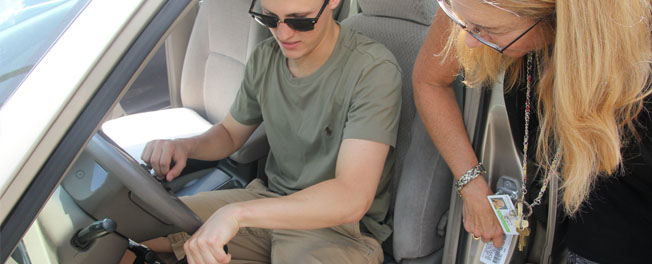
Driving and Community Mobility Laboratory
General Laboratory Description
Dr. Barco is dual-certified in driving rehabilitation and directs the Driving and Community Mobility Laboratory, in which students are actively incorporated into both clinical and research experiences. This clinic functions as part of community practice and evaluates individuals who have various medical conditions (such as diabetes, dementia, Parkinson’s disease, stroke, amputations, visual disorders) and has a large history of grant funding to study fitness to drive. All clients must have a medical referral to receive a comprehensive driving evaluation – which includes a clinical assessment and an on-road assessment. Driving is an IADL that is highly important to individuals faced with medical conditions which could impact driving safety, and occupational therapists have an important role in providing guidance to clients, care partners, and physicians in determining how, when, and if a client is safe to drive.
General Description of Student Activities
Students have the opportunity to perform occupational therapy vision, motor, cognitive screens, and performance-based cognitive assessments, observe on-road assessments, and participate in driving recommendation meetings. Students become familiar with EPIC (electronic medical record) through a review of medical history related to the clients who are being evaluated. Students benefit from observing how therapists utilize clinical reasoning, interpersonal communication skills and therapeutic use of self to assist in providing sometimes-difficult driving recommendations (including driving retirement and transition plans) to clients and families.
Examples of Projects
Projects can be clinic- or research-focused, depending on the student’s individual goals.
- Assist in the development/study of services for specialized populations (e.g., autism, driving with lower limb amputations) related to driving abilities
- Assist in the development of occupational therapy’s role in interventions supporting best practice in the development of alternative transportation options to driving to maintain participation
- Assist in development/implementation of an interactive web page for the lab (prior knowledge required)
- Assist in writing grants and manuscripts (e.g, current topics of clinic interest are driving with lower limb amputation, interventions with driving and low vision, and occupational functional cognitive based assessments and driving)

